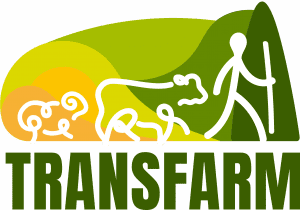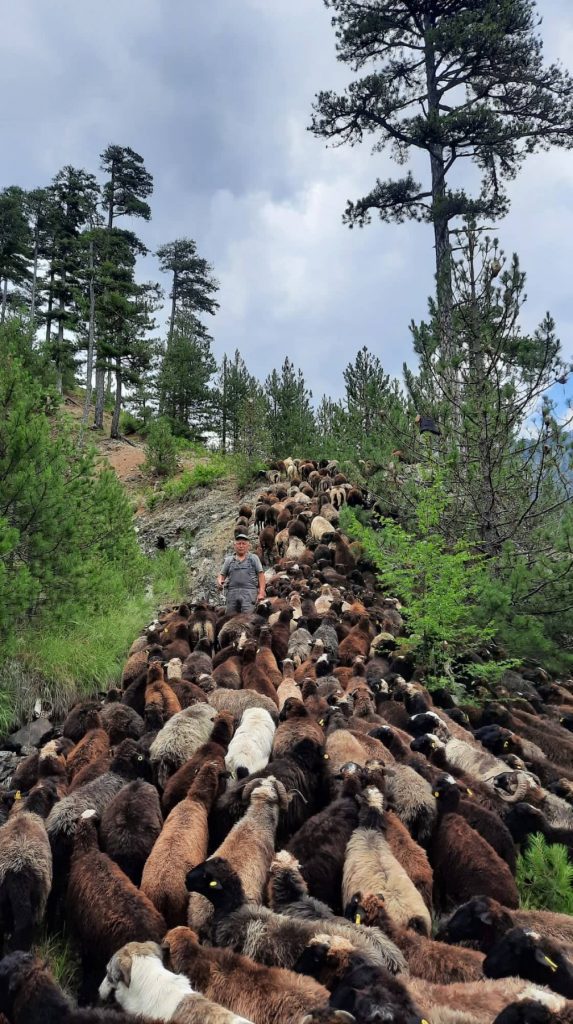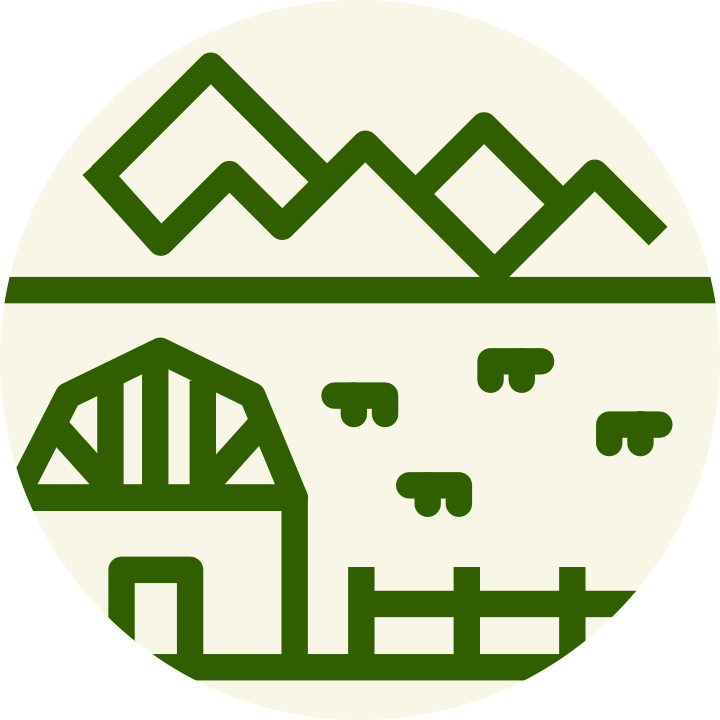Ioannis Anthoulis is a young man (37 years old) who has worked with transhumance farming systems for more than 20 years. He succeeded his father on the management of farm activities. Nowadays, he owns a big organic farm with 3000 sheep, 50 goats, and 200 cattle.




